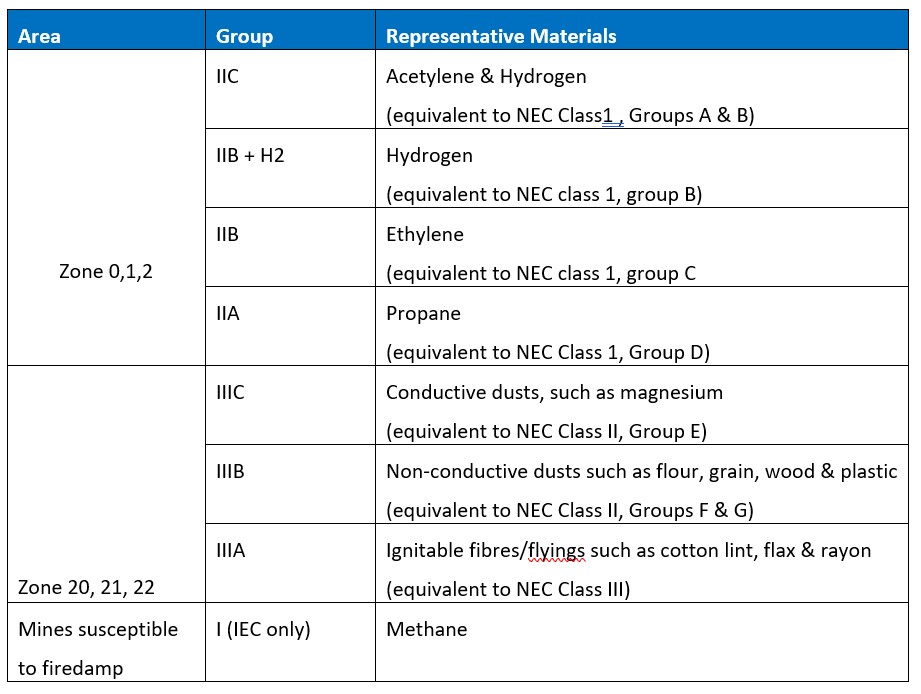7 Easy Facts About Roar Solutions Described
7 Easy Facts About Roar Solutions Described
Blog Article
Our Roar Solutions PDFs
Table of ContentsThe Greatest Guide To Roar SolutionsThe Greatest Guide To Roar Solutions10 Simple Techniques For Roar Solutions
In order to protect installments from a possible surge an approach of analysing and identifying a possibly dangerous location is needed. The function of this is to guarantee the right choice and setup of equipment to ultimately protect against a surge and to guarantee security of life.
(https://www.video-bookmark.com/bookmark/6634779/roar-solutions/)
No tools must be set up where the surface temperature level of the equipment is higher than the ignition temperature level of the provided danger. Below are some typical dust harmful and their minimal ignition temperature. Coal Dust 380C 225C Polythene 420C (melts) Methyl Cellulose 420C 320C Starch 460C 435C Flour 490C 340C Sugar 490C 460C Grain Dust 510C 300C Phenolic Resin 530C > 450C Aluminium 590C > 450C PVC 700C > 450C Residue 810C 570C The chance of the threat being present in a concentration high adequate to cause an ignition will differ from place to area.
In order to categorize this danger an installation is separated right into areas of threat relying on the amount of time the harmful is present. These locations are described as Zones. For gases and vapours and dusts and fibers there are three zones. Area 0 Zone 20 A hazardous ambience is extremely most likely to be existing and may exist for long durations of time (> 1000 hours annually) or perhaps continuously Zone 1 Zone 21 An unsafe environment is possible yet unlikely to be existing for extended periods of time (> 10 450 C [842 F] A category of T6 implies the minimum ignition temperature level is > 85 C [185 F] Unsafe location electrical tools perhaps developed for use in higher ambient temperature levels. This would certainly suggested on the rating plate e.g. EExe II C T3 Ta + 60C( This indicates at 60C ambient T3 will not be surpassed) T1 T1, T2, T3, T4, T5, T6 T2 T2, T3, T4, T5, T6 T3 T3, T4, T5, T6 T4 T4, T5, T6 T5 T5, T6 T6 T6 A T Course score of T1 implies the maximum surface area temperature level created by the instrument at 40 C is 450 C. Presuming the associated T Course and Temperature rating for the tools are suitable for the location, you can always use an instrument with a much more strict Division score than required for the area. There isn't a clear response to this inquiry. It actually does rely on the kind of tools and what fixings need to be executed. Devices with certain test procedures that can not be done in the field in order to achieve/maintain 3rd celebration score. Should come back to the factory if it is before the tools's solution. Area Repair Work By Authorised Employee: Challenging testing might not be required nonetheless specific procedures may require to be adhered to in order for the equipment to keep its 3rd party score. Authorised workers should be employed to execute the job appropriately Repair should be a like for like substitute. New element have to be considered as a direct replacement needing no special screening of the equipment after the repair service is complete. Each tool with a dangerous rating should be assessed independently. These are laid out at a high level listed below, however, for even more thorough details, please refer directly to the guidelines.
The Facts About Roar Solutions Revealed
The devices register is a thorough data source of tools records that consists of a minimum collection of areas to determine each thing's place, technological specifications, Ex classification, age, and ecological data. The proportion of Detailed to Close evaluations will certainly be determined by the Read Full Article Equipment Danger, which is evaluated based on ignition risk (the chance of a source of ignition versus the chance of a combustible environment )and the unsafe area classification
( Zone 0, 1, or 2). Applying a robust Risk-Based Examination( RBI )technique is vital for ensuring conformity and safety in handling Electrical Equipment in Hazardous Locations( EEHA).
7 Easy Facts About Roar Solutions Explained
In regards to explosive danger, a hazardous location is an atmosphere in which an eruptive atmosphere is existing (or may be expected to be present) in amounts that need unique precautions for the building and construction, installation and use of tools. eeha courses. In this write-up we explore the challenges faced in the work environment, the danger control measures, and the called for proficiencies to function safely
It issues of contemporary life that we make, save or handle a range of gases or liquids that are regarded flammable, and a variety of dusts that are regarded flammable. These substances can, in particular conditions, form explosive ambiences and these can have major and awful repercussions. A lot of us are acquainted with the fire triangle get rid of any kind of among the 3 aspects and the fire can not occur, yet what does this mean in the context of harmful locations? When damaging this down into its easiest terms it is basically: a mix of a particular amount of launch or leak of a particular material or product, combining with ambient oxygen, and the existence of a resource of ignition.
In many circumstances, we can do little about the levels of oxygen airborne, but we can have considerable influence on sources of ignition, as an example electric equipment. Dangerous areas are documented on the dangerous location classification drawing and are identified on-site by the triangular "EX" indication. Below, amongst various other essential details, areas are divided into 3 kinds depending upon the danger, the chance and duration that an explosive environment will certainly exist; Zone 0 or 20 is regarded one of the most harmful and Area 2 or 22 is considered the least.
Report this page